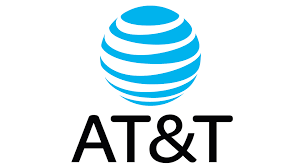AT&T: Congress ‘Bowed to Broadcasters’ on Eliminating STELAR
DALLAS—The Satellite Television Extension and Localism Act Reauthorization—better known as STELAR—is poised to expire at the end of the year and Congress is readying its final approval of the bill that will permanently let it expire, save in a few instances. AT&T’s Senior Executive Vice President of External & Legal Affairs Jim Cicconi expressed why he felt this was a mistake on AT&T’s blog.

Cicconi writes that the removal of STELAR will also remove access to broadcast channels for hundreds of thousands of consumers. “Make no mistake, when the screens of those consumers go dark, the sole reason will be that Congress did not act to protect them,” he wrote.
STELAR is the primary compulsory license that allows satellite operators to import distant network TV station signals to markets. Broadcasters have argued that the license is no longer relevant and have been pushing for it to expire at the end of its most recent five-year renewal cycle this year. Congress seems to have agreed. The House officially passed the appropriations bill that includes the sunsetting of STELAR, and the Senate is expected to do the same by Friday, Dec. 20.
In addition to the sunset of STELAR, the appropriations bill also makes permanent the requirement that retransmission disputes are conducted in “good faith” and it will maintain compulsory licenses for RVs, truckers and “short” markets, which are markets without one or more local network affiliates available.
However, Cicconi does not think these measures will prevent the loss of access to some channels for consumers, but instead there is a need for reform regarding the issue of retransmission fees.
Cicconi presents that retransmission fees for local broadcast stations have grown from $200 million in 2006 to $11.7 billion in 2019—an increase of 5,000%. He says that these increase in fees have trickled down to higher bills for consumers. Rather than address this, Cicconi writes that Congress has “bowed to further demands from broadcasters.”
“If the broadcasters truly want to debate, and to justify such predation based on the principle of free market economics, we are prepared,” writes Cicconi. “But all issues should be on the table. That includes the grant of free spectrum from the public given to local broadcasters for one purpose and now used for another. It should also include the grant of monopoly rights for local broadcasters in specific geographic areas—hardly consistent with any concept of a free market.”
The professional video industry's #1 source for news, trends and product and tech information. Sign up below.
Read the full version of Cicconi’s blog on AT&T’s website.
UPDATE: The NAB responded to Cicconi's blog post with a statement from Dennis Wharton, NAB executive vice president of communications:
“AT&T is being remarkably disingenuous in suggesting that broadcasters are responsible for rising pay-TV prices. Pay-TV prices have increased independent of programming costs for decades. Further, as the attached chart from S&P Global notes, cable network fees are the primary driver of high programming costs. AT&T's own CNN, TBS and TNT networks are among the cable networks charging the highest fees, despite rating that are paltry in comparison to eyeballs delivered by local TV stations.
“There is no reason for 'screens to g dark' as a result of the STELAR bill, as claimed by AT&T. Instead, AT&T's DirecTV has the opportunity as a result of STELAR to fulfill its decade-long pledge to deliver local TV to tens of thousands of viewers in 12 'unserved rural markets. We are hopeful that AT&T delivers on that promise and supports the wishes of Congress in delivering local television signals to rural viewers.”
